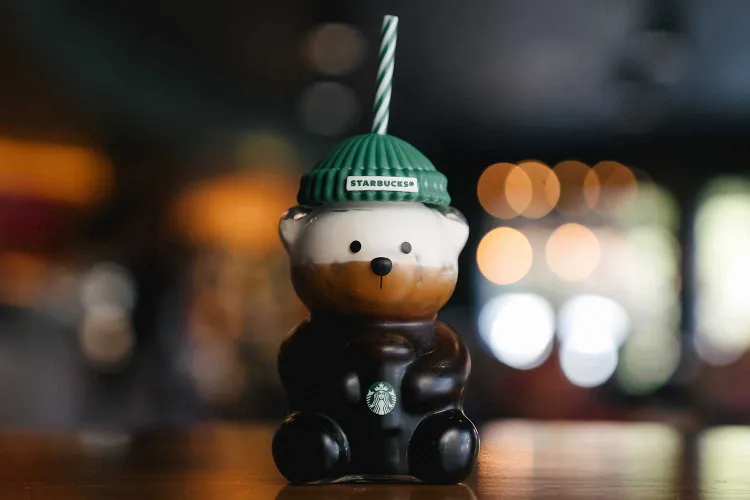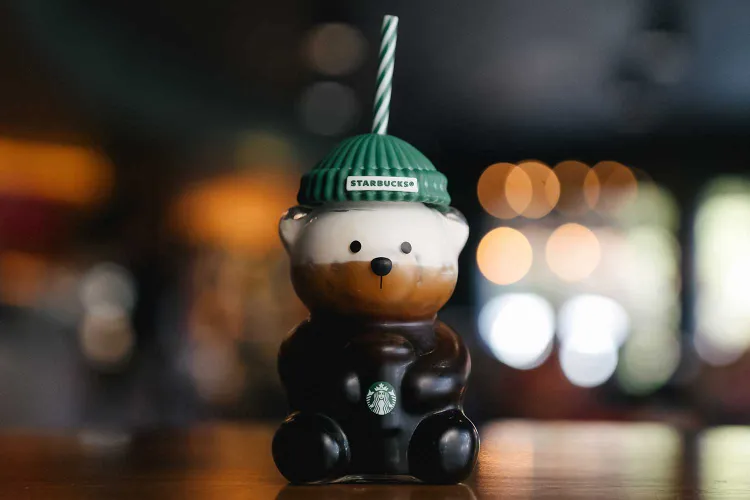Starbucks’ Limited-Edition Bearista Cold Cup Sells Out in Minutes — Company Apologizes After Massive Fan Outrage and Resale Frenzy
When Starbucks launched its long-awaited “Bearista” Cold Cup on November 6, 2025, it expected excitement — but not chaos. Within hours, the bear-shaped 20-ounce holiday tumbler had sold out nationwide, leaving thousands of customers frustrated and empty-handed. What was meant to be a cute seasonal collectible quickly turned into a viral frenzy that forced Starbucks to issue an official apology.

The Bearista Cold Cup — featuring a teddy bear design, a signature green beanie lid with a striped straw, and the Starbucks logo — was priced at $29.95 as part of the company’s 2025 holiday collection. Released alongside festive red and green drinkware, it became an instant hit. By the end of the day, shelves across the country were wiped clean. Some stores reportedly sold out within minutes of opening, while others never even received a shipment, leaving customers waiting in line for hours with nothing to show for it.
In a statement to People, Starbucks acknowledged the frustration, saying: “The excitement for our merchandise exceeded even our biggest expectations, and despite shipping more Bearista cups to coffeehouses than almost any other merchandise item this holiday season, the Bearista cup and some other items sold out fast. We understand many customers were excited about the Bearista cup and apologize for the disappointment this may have caused.”
That disappointment was felt across social media, where videos of early-morning lines, disappointed customers, and resale listings began to dominate the conversation. One TikTok video showed dozens of people lined up before dawn outside a Starbucks in California. The first two in line snagged the only two cups in stock. Another user shared their frustration on X (formerly Twitter): “I woke up at 4 a.m. for the Bearista cup, and the barista told me they had none. I’m done trying with these drops.”
Within hours, the Bearista cup appeared on eBay and Mercari with shocking resale prices — some listed for over $150, others reaching $500 or more. In certain cases, sellers claimed they had multiple units, sparking suspicion among fans that store employees may have purchased stock themselves before customers arrived. Starbucks has not commented on those allegations, but the controversy only fueled public anger and a sense of unfairness around the sale.
The backlash was swift and intense. Fans accused Starbucks of creating “artificial scarcity” to drive hype, while others called for the company to limit quantities per customer. Some even suggested the coffee giant should move future releases online to avoid the chaos in stores. The hashtag #BearistaCup trended for hours as collectors shared photos of their successful hauls — and disappointed fans vented about missing out.
For Starbucks, the Bearista moment is both a triumph and a problem. On one hand, the overwhelming demand shows the power of its brand and its ability to turn a simple cup into a viral sensation. On the other, it highlights the risk of alienating loyal customers when supply can’t meet demand. The company said it shipped more Bearista cups than nearly any other holiday product this year — but it simply wasn’t enough.
Many retail experts believe Starbucks underestimated the viral appeal of the design. The Bearista cup’s cute, nostalgic look, combined with holiday marketing and collector culture, created a perfect storm. Similar to past “Stanley cup” frenzies and Disney merchandise shortages, the Bearista drop triggered a modern shopping phenomenon: people waiting in long lines, recording videos for social media, and flipping limited items for profit within hours.
Some customers described tense scenes inside stores, with reports of small disputes and shouting matches over the last available cups. A viral TikTok from a Texas location showed a crowd rushing toward a shelf as baristas tried to calm them down. “It was like Black Friday but for a coffee cup,” one commenter joked.
Starbucks, for its part, insists it never intended the launch to cause frustration. The company’s holiday collections have long been part of its seasonal identity, from red cups to collectible tumblers. But the Bearista’s immediate sell-out took even corporate teams by surprise. According to People, internal communications described the demand as “unprecedented,” prompting the company to reevaluate its holiday release strategy going forward.
In its public statement, Starbucks hinted that more merchandise could arrive soon, though it stopped short of confirming whether the Bearista cup itself would return. “We’re thrilled to see such enthusiasm for our holiday collection,” a spokesperson said, “and we’ll have more festive surprises in stores throughout the season.”
Still, the apology hasn’t been enough to calm everyone. Some customers have vowed to boycott Starbucks merchandise altogether, claiming the brand thrives on exclusivity rather than accessibility. Others, however, view the Bearista debacle as proof of the company’s cultural influence — that even a simple cup can spark mass excitement and emotional investment.
For collectors who managed to get one, the Bearista has already become a status symbol. “It’s not just a cup,” one fan wrote online. “It’s the holiday spirit in your hands.” For everyone else, the Bearista story has become a cautionary tale of modern consumer culture — where marketing meets FOMO (fear of missing out), and even a coffee cup can become an obsession.
Analysts note that this type of limited-edition frenzy is increasingly common among lifestyle brands. Companies like Starbucks, Stanley, and Lululemon often use scarcity and drop-based marketing to fuel desire. But when scarcity feels unplanned or unfair, it can backfire. In Starbucks’ case, the apology was a step toward transparency — a recognition that for many customers, the shopping experience matters just as much as the product itself.
As the holiday season continues, Starbucks will likely pivot toward smoother launches, perhaps staggering inventory or offering online preorders. But the Bearista craze has already left its mark — proving once again that the power of a brand isn’t just about caffeine or coffee. It’s about community, collectibility, and connection.
For now, the Bearista cup remains a symbol of holiday mania — a tiny bear in a green beanie that united, divided, and captivated millions. And for Starbucks, the challenge moving forward is clear: turning that same passion into joy, not disappointment, the next time a new cup hits the shelves.


